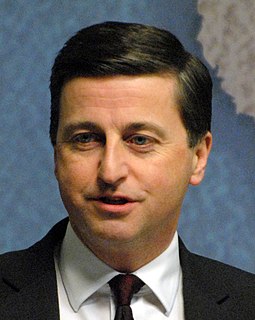A Quote by Lawrence Douglas
Aristocratic depression has this cosmic dimension to it, where it's asking these big questions about, "Why?" "What is the purpose of all this?" Neuroses of the middle class is the banishment of aristocratic depression, because it's kind of this obsession with quotidian detail that pushes these larger questions away.
Related Quotes
If you don't put the spiritual and religious dimension into our political conversation, you won't be asking the really big and important question. If you don't bring in values and religion, you'll be asking superficial questions. What is life all about? What is our relationship to God? These are the important questions. What is our obligation to one another and community? If we don't ask those questions, the residual questions that we're asking aren't as interesting.
So Socrates was a kind of gadfly. He was a sort of philosophical urban gorilla hanging around in the middle of Athens, asking these peculiar questions of everybody - important people, young men, slaves - questions that had to do with ultimately what's the life that's worth living. And Plato was one of the young men who hung around him, a very aristocratic young man, came from a very old, important family.
I have never said that human society ought to be aristocratic, but a great deal more than that. What I have said, and still believe with ever-increasing conviction, is that human society is always, whether it will or no, aristocratic by its very essence, to the extreme that it is a society in the measure that it is aristocratic, and ceases to be such when it ceases to be aristocratic. Of course I am speaking now of society and not of the State.
Curiosity is a key building block. The more curious you are, the more creativity you will unleash. A great way to do that is to ask the three "magic questions" again and again... those questions are simply, "Why", "What if?", and "Why not?". Asking these questions constantly focused you on the possibilities and away from how things are at the moment.
The cool thing about Watchmen is it has this really complicated question that it asks, which is: who polices the police or who governs the government? Who does God pray to? Those are pretty deep questions but also pretty fun questions. Kind of exciting. It tries to subvert the superhero genre by giving you these big questions, moral questions. Why do you think you're on a fun ride? Suddenly you're like how am I supposed to feel about that?
Well, you know, there's depression and depression. What I mean by depression in my own case is that depression isn't just the blues. It's not just like I have a hangover in the weekend ... the girl didn't show up or something like that. It isn't that. It's not really depression, it's a kind of mental violence which stops you from functioning properly from one moment to the next. You lose something somewhere and suddenly you're gripped by a kind of angst of the heart and of the spirit.
Manic depression is a type of depression, technically, and it's the opposite of uni-polar. Manic depression is also called bi-polar disorder. Some people don't like to call it that because they think it makes it sound too nice, when the reality is if you have manic-depression you have manic-depression.


































